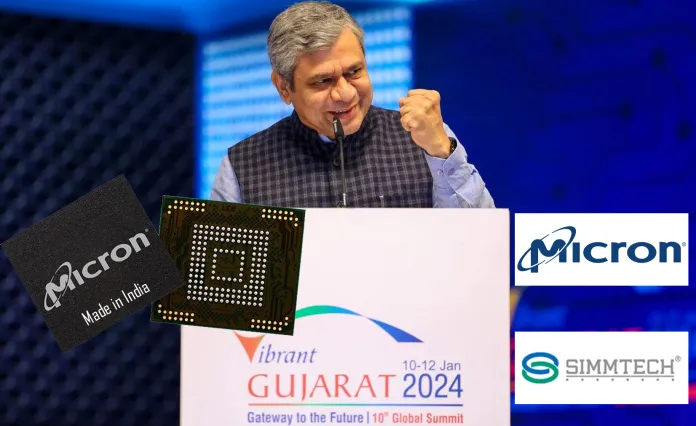India’s First Indigenous Semiconductor Chip to Debut in 2025
When India releases its first domestic semiconductor chip in 2025, it will mark a significant milestone. At the World Economic Forum in Davos, Union Minister Ashwini Vaishnaw spoke with Shereen Bhan about this historic development. India’s swift progress in building a strong semiconductor sector, which has emerged as a global priority for technical and economic resilience, is reflected in the statement.
Credits: Money Control
Building a Semiconductor Ecosystem
Prime Minister Narendra Modi’s goal of creating a complete semiconductor ecosystem in the nation served as the impetus for this accomplishment. The government’s introduction of a semiconductor-specific policy in January 2022 paved the way for the development of a flourishing design, manufacturing, and research environment.
With updated curricula to meet the demands of the semiconductor industry, 104 colleges have already joined this revolutionary path, Vaishnaw noted. The minister emphasized the comprehensive strategy being used to guarantee India’s success in this high-tech industry by saying, “There is a lot of focus on design with a separate investment scheme.”
Progress Since the Policy Launch
A crucial step toward lowering dependency on imports was taken in February 2023 when the Indian government authorized the construction of three semiconductor production facilities. Minister Vaishnaw noted that the government’s conviction and carefully considered policies have allowed for impressive progress to be realized quickly.
“Senior industry representatives were shocked to learn how much work had been done in such a short period of time,” Vaishnaw said. His remarks highlight India’s dedication to promoting innovation and drawing in foreign capital and talent for its semiconductor industry.
Lessons from the Pandemic
The vulnerabilities of global supply chains, especially in the semiconductor industry, were exposed by the COVID-19 pandemic. Chip shortages caused major problems for manufacturers of consumer electronics, medical devices, and automobiles. The necessity of increased geographic diversification and self-reliance in semiconductor manufacture was highlighted by this situation.
India has reacted resolutely to these lessons, aiming to establish itself as a major participant in the global supply chain for semiconductors. The nation hopes to guarantee its industry’ continuous access to semiconductors by making investments in capacity building and cultivating alliances with academic and business players.
Rising Interest in India’s Semiconductor Potential
The minister also noted a surge in interest from global semiconductor ecosystem companies. Participation in India’s flagship Semicon India events has increased fourfold, reflecting the confidence of international players in India’s potential. The events have become a platform for collaboration, innovation, and showcasing India’s capabilities in semiconductor technology.
Challenges and Opportunities
Notwithstanding the advancements, creating a semiconductor ecosystem is a challenging undertaking requiring consistent funding, highly qualified personnel, and state-of-the-art research. A thorough plan to solve these issues is shown by India’s method of updating educational curricula, developing investment schemes, and setting up manufacturing facilities.
Given that it significantly enhances the ecosystem and establishes India as a global center for design, the emphasis on design is very encouraging. India is laying the groundwork for sustained expansion in the semiconductor industry by developing a pool of talented engineers and technologists.
![]()
Credits: NDTV
A Vision for the Future
The rollout of India’s first indigenous chip in 2025 is not just a technological feat but a testament to the nation’s growing ambitions in high-tech manufacturing. It represents a critical step toward self-reliance, economic growth, and resilience in an increasingly digitized world.
India’s proactive policies and smart investments are expected to pay off as the demand for semiconductors continues to rise globally. The nation is well situated to develop into a center for the production and innovation of semiconductors, enhancing global supply chains and lowering reliance on established firms.
The declaration made by Minister Vaishnaw from Davos, which marks India’s rise as a technology superpower on the international scene, is a ray of pride and hope. In addition to the introduction of India’s first domestic chip, 2025 will usher in a new era in the country’s progress toward independence and innovation.


Comments are closed.